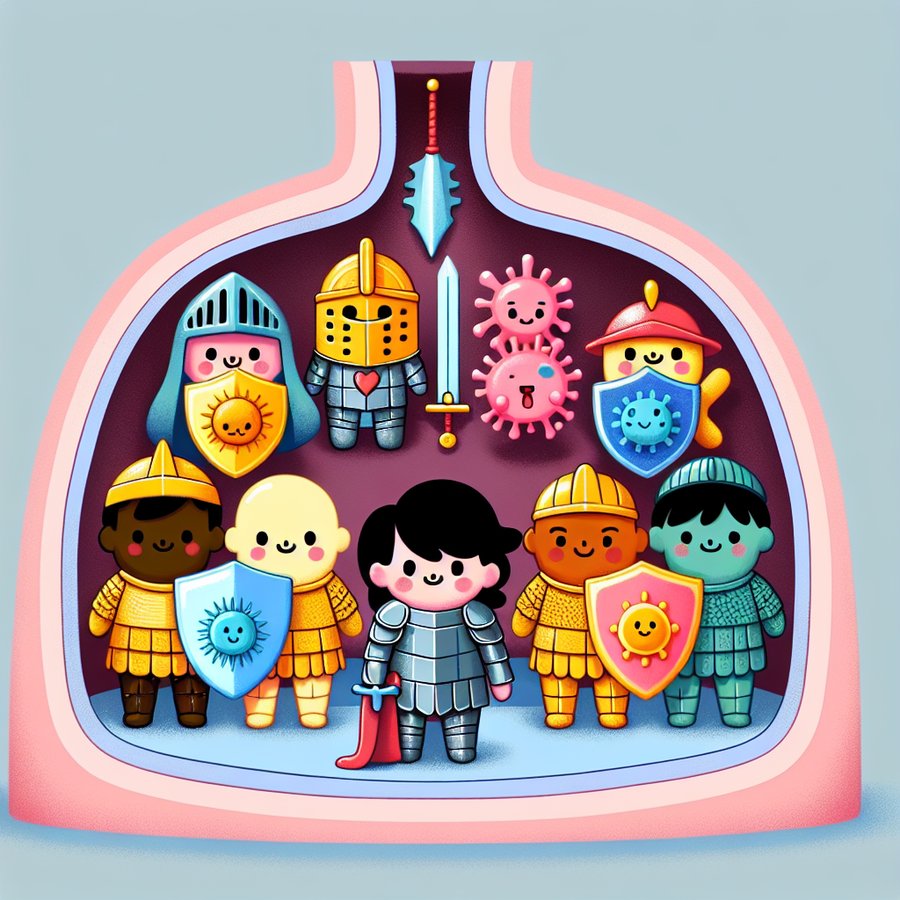Immunodeficiency in babies is a critical topic that every new parent should be familiar with. It involves a range of conditions where the immune system’s ability to fight infections is compromised, making infants more susceptible to illnesses. This article delves deep into understanding immunodeficiency, its signs, and how to safeguard your baby’s health.
What is Immunodeficiency?
Immunodeficiency refers to the decreased efficacy or absence of the immune system’s components, leading to a reduced ability to combat infections and diseases. In babies, this can be particularly concerning as their immune systems are still developing. There are two types of immunodeficiency: primary, which is present from birth due to genetic reasons, and secondary, which is acquired later in life due to external factors like infections or medical treatments.
Understanding the distinction between these types is crucial for identifying the best course of action for managing and treating this condition in infants.
How to Recognize the Signs of Immunodeficiency in Your Baby
Early detection of immunodeficiency can significantly influence the management of the condition. Key signs that may indicate a weakened immune system in babies include frequent infections, infections that are more severe than usual, delayed recovery from illnesses, and infections caused by organisms that don’t typically cause disease in healthy individuals. Parents should also be aware of symptoms such as poor growth, weight loss, and recurrent skin rashes.
Observing and reporting these signs to your pediatrician promptly can lead to early diagnosis and treatment, potentially preventing more serious health issues.
Treatment Options and Preventive Measures for Babies with Immunodeficiency
Treatment for immunodeficiency in babies varies based on the type and severity of the condition. For primary immunodeficiencies, treatments may include immunoglobulin therapy, antibiotics to prevent infections, and in severe cases, bone marrow transplant. Secondary immunodeficiencies often require treating the underlying cause, such as discontinuing immunosuppressive medications or addressing nutritional deficiencies.
Preventive measures play a crucial role in protecting immunodeficient babies from infections. These include ensuring up-to-date vaccinations (including [influenza and pneumococcal vaccines](https://www.cdc.gov/vaccines/vpd/pneumo/index.html)), practicing good hygiene, avoiding exposure to sick individuals, and regular medical check-ups. Educating family members and caregivers about the importance of these practices is also essential.
Understanding the Role of Immunizations in Babies with Immunodeficiency
Immunizations are a cornerstone in preventing infectious diseases, especially in babies with immunodeficiency. However, the administration of certain vaccines may differ. For instance, live vaccines are generally avoided in children with significant immune system impairments. It’s essential to consult with a healthcare provider to determine the safest and most effective vaccination schedule for your baby.
For further guidance, resources like the article on immunizations from our internal link library offer valuable information for parents navigating the complexities of vaccinations for immunodeficient infants.
When to Seek Medical Advice for Your Baby’s Immunodeficiency
If you suspect your baby may have an immunodeficiency, or if they exhibit any concerning symptoms, seeking medical advice promptly is crucial. A pediatrician can conduct various tests to diagnose immunodeficiency accurately. These might include blood tests to evaluate immune function, imaging studies to look for structural abnormalities, and specialized immune system assessments.
Early intervention and specialized care can make a significant difference in the health and well-being of babies with immunodeficiency. For more detailed information, exploring our articles on antibiotic reactions, acid reflux, and eczema could provide additional insights into managing common conditions that may affect immunodeficient infants.













